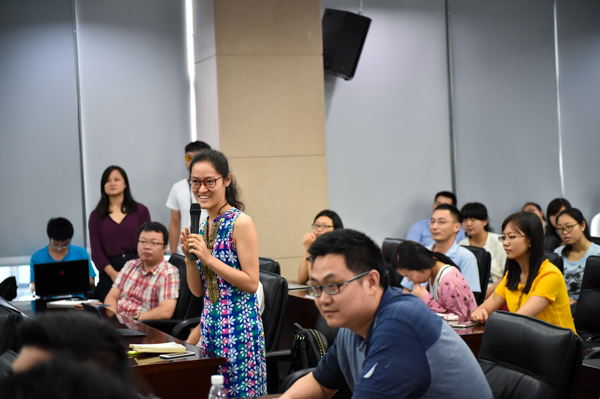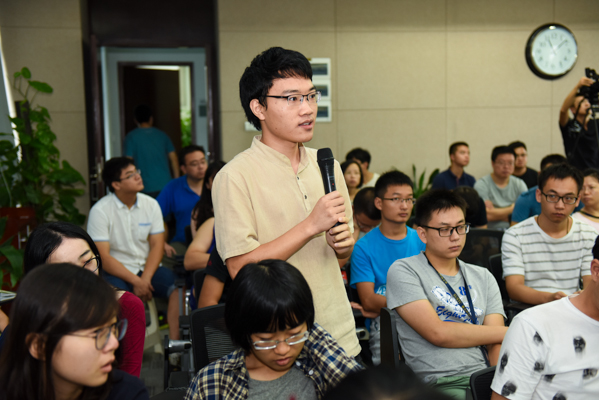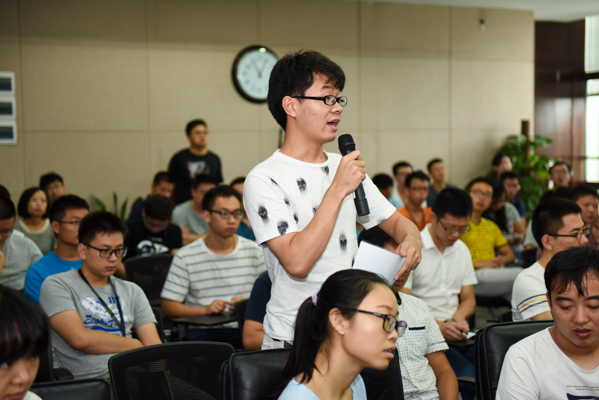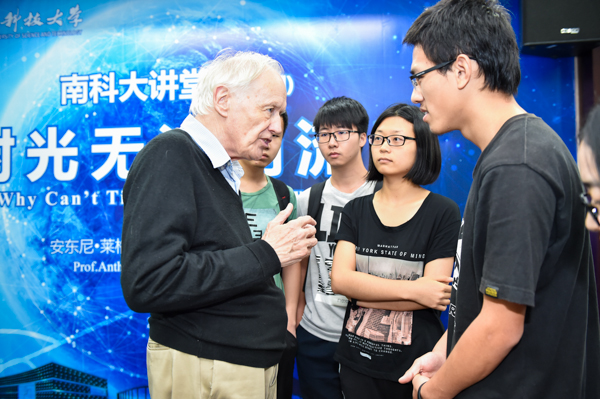On the morning of August 16, Professor Anthony James Leggett, winner of the 2003 Nobel Prize in Physics, was invited to the 78th session of SUSTech Lectures and gave a report themed Why Can’t Time Run Backwards in a simple way.

Prof. Leggett was awarded 2003 Nobel Prize in Physics for his outstanding theoretical achievement in superfluid 3He. He is now an expert in quantum information and teaches in University of Illinois at Urbana-Champaign.

Encourage the audience to think with questions
Leggett’s lecture began with the simple Newton’s Second Law of Motion. Then he used a model where time ran backwards and the speed reversed with unchanged accelerated speed to verify the famous Newton’s Third Law of Motion. Besides, he presented other models to explain how the model are affected by the magnetic field and the descriptions in Quantum Mechanics.
Prof. Leggett put forward a question Can the Past Really ‘Determine’ the Future and answered it by combining the theory of Pierre-Simon Laplace, a famous French probabilist and physicist, and Newton’s Second Law of Motion. Throughout the report, Leggett encouraged the audience to think with questions, which is thought provoking.

Explain questions on time in a simple way
Prof. Leggett is also good at using simple examples in life to explain profound question on time. He expounded the free diffusion of gas under ideal conditions, factors that influence parking in real life, Boltzmann’s interpretation of the “future direction” and so on. It should be noted that Leggett specifically mentioned the exceptions of CP violation observed in high energy experiments.

Straightforward figures were also employed by Prof. Leggett to explain Physics related questions, which enabled the audience to easily understand complex and abstract questions.
As for the question Can Time Runs Backwards Temporarily or Partially, Leggett stated an experiment to show present research findings on it.

SUSTech teachers and students actively participate in the Q & A session
In the Q & A session, SUSTech teachers and students competed to ask questions on the possibility of realizing Grandfather paradox, the possibility of reduction of entropy in the growth of living things, etc. Notably, at 01:40 of the same day, China successfully launched the first quantum science experimental satellite in the world, which attracted the attention of Prof. Leggett. He fully affirmed the significance of launching the quantum satellite.

The lecture ended in the warm applause of the students, who stayed in the lecture room to continue to discuss questions with Prof. Leggett.
Proofread By
Photo By